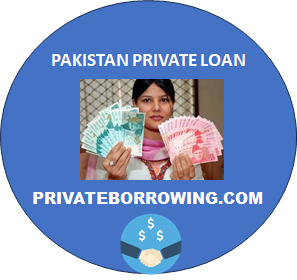
What is a Loan Provider in Pakistan (With & Without P2P) ?
Pakistan private loan lenders are individuals, institutions, or financial companies that provide credit outside of traditional banks and these Pakistani lenders cater to borrowers who may not qualify for bank loans due to strict requirements, lack of credit history, or urgent financial needs.
Private lending in Pakistan includes options such as personal loans, business loans, and real estate financing, often with more flexible approval criteria but sometimes at higher costs; also borrowers may deal directly with private money lenders or financial firms that operate independently of the regulated banking sector.
Who does borrowing money from Pakistani private lenders work (with and without P2P) ?
Here’s a simplified explanation of how borrowing money from Pakistani private lenders works (with and without P2P):
🔹 Borrowing with P2P (Peer-to-Peer) platforms
In Pakistan, P2P lending platforms act as digital marketplaces connecting borrowers directly with private investors.
- A borrower applies online, stating the loan amount, purpose, and repayment capacity.
- The platform reviews the application, assigns a risk profile, and lists it for investors.
- Private investors pool money to fund the loan (sometimes multiple investors share one loan).
- Once funded, the borrower receives the money through the platform, and repayments are made in installments with profit/markup instead of traditional interest (especially for Sharia-compliant models).
👉 Advantage: Transparent, regulated by fintech platforms, often quicker approvals.
🔹 Borrowing without P2P (direct private lenders)
Borrowers can also deal directly with individual money lenders, microfinance institutions, or private finance companies outside online platforms.
- The borrower approaches a private lender personally or through networks.
- Terms are negotiated directly (loan amount, repayment schedule, collateral, markup/interest).
- Funds are disbursed directly by the lender, often faster than banks.
👉 Advantage: Flexible and fast;
👉 Risk: Less transparency, higher costs, sometimes unregulated lending practices.
🔹 Key Difference
- With P2P: Structured, digital, transparent — borrowers connect with multiple investors through a regulated platform.
- Without P2P: Informal, direct, flexible — but often riskier and potentially more expensive.
Which private lenders in Pakistan offer had money loans with and without P2P lending ?
Here’s what I found regarding P2P lending platforms and private (non‑P2P) lenders operating in Pakistan:
Pakistani P2P Lending Platforms
- Finja / Finja Invest
A licensed NBFC with a peer‑to‑peer lending component. Described as Pakistan’s first and only P2P financing platform regulated by the SECP. - Zhuan, MicroLend, and Kiva
These are additional platforms reportedly licensed under the P2P framework in Pakistan HOP Blog. Note that Kiva is globally known and partners with local organizations to deliver microloans, though its local operation details in Pakistan warrant deeper verification. - The SECP has approved P2P lending platforms via its regulatory sandbox, indicating official support and licensing pathways.
Pakistani Private Lenders (Non-P2P, Traditional or Specialized)
Though not explicitly labeled as “hard-money,” the following entities offer private financing solutions without utilizing the P2P model:
- Trellis Housing Finance Limited
Describes itself as Pakistan’s first specialised private lending institution targeting very low-income and informal-sector customers. - Ihsaas Trust / Community Upliftment
A nonprofit offering microloans to underserved populations in Karachi—interest‑free and aimed at social mobility - Alkhidmat Foundation (Mawakhat program)
Provides interest‑free small-business loans to poor or needy individuals, as part of its social welfare initiatives alkhidmat.com.